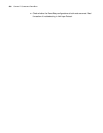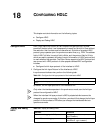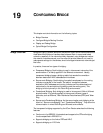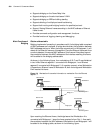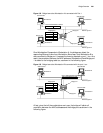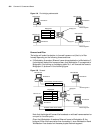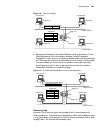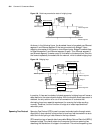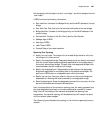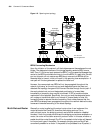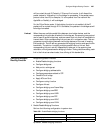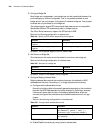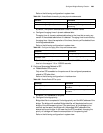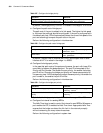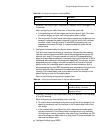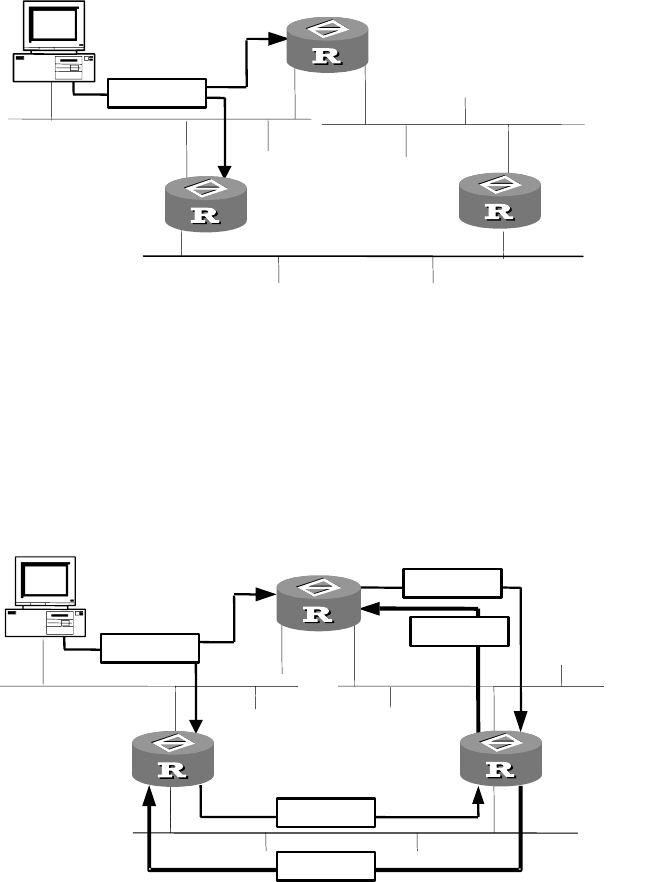
294 CHAPTER 19: CONFIGURING BRIDGE
Figure 108 Preliminary examination state of bridging loops
As shown in the following figure, the broadcast frame is forwarded over Ethernet
segment 2 and Ethernet segment 3 that are connected with Bridge Z. Upon
detecting two copies of this frame on two different ports, Bridge Z forwards them
to Ethernet segment 3 and Ethernet segment 2 again. Thus, Ethernet segment 2
and Ethernet segment 3 receive a copy of this frame for the second time. Like this,
the frame is repeatedly forwarded over the network, which is called bridging loop.
Figure 109 Bridging loop
In practice, if there are hundreds of physical segments, bridging loops will cause a
sharp decline to the network performance. After the location where loops occur is
detected, the only solution is to cut off all connections. It is obvious that
eliminating loops is an essential requirement for ensuring the bridge working
normally. Therefore, the third function of bridge is to locate loops and block
redundant ports.
Spanning Tree Protocol Spanning Tree Protocol (STP) is used to prevent redundant paths through certain
algorithms. A loop network is thus pruned to be a loop-free tree network so as to
avoid the infinite cycling of data frames in the loop network.
STP transmits a type of special data frame called Bridge Protocol Data Unit (BPDU)
between bridges. The overall network will compute a minimum spanning tree
describing the distribution of bridges in the network. This minimum spanning tree
Broadcast address
Bridge X
Bridge Y
Bridge Z
Ethernet segment 1
Ethernet segment2
Ethernet segment3
FFFFFFFFFFFF
Bridge X
Bridge Y
Bridge Z
Broadcast frame
Ethernet segment 1
Ethernet segment2
Ethernet segment3
Forwarding broadcast frame
Forwarding broadcast frame
Forwarding broadcast frame again
Forwarding broadcast frame again
FFFFFFFFFFFF
FFFFFFFFFFFF
FFFFFFFFFFFF
FFFFFFFFFFFF
FFFFFFFFFFFF



